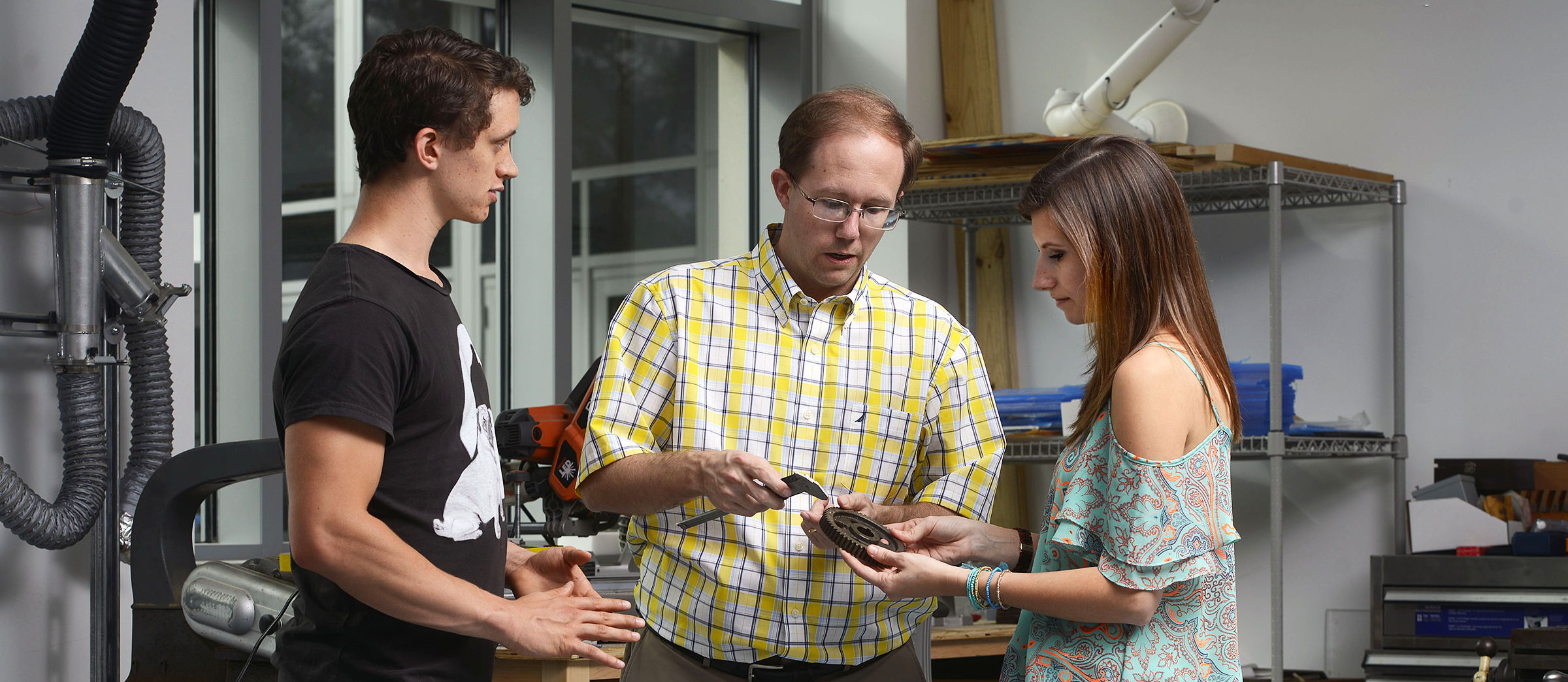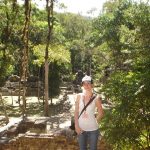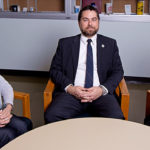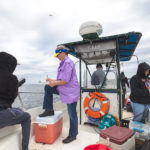Steering UWF’s New Mechanical Engineering Program
Pensacola – Dr. Michael Reynolds is associate professor and director of the University of West Florida mechanical engineering program, which officially launched this semester. The University is offering a bachelor of science degree in the field. Reynolds said at least 150 students have already declared mechanical engineering as their major.

Q: What are the origins of the mechanical engineering program at UWF?
Reynolds: The beginning was certainly a little bit before I came here, but everything I heard was that there was a demand for mechanical engineering from local industry.
And also I think there were a lot of local leaders who had said that if we really want to boost the economy here in Northwest Florida, that one of the things we need to do is really offer more engineering types. We’ve had very successful electrical, computer (programs), but then having the mechanical on board is going to be something that is going to be attractive to new businesses, new employers – that they’re going to be able to hire a wider range of talent in engineering.
It’s going to support hopefully recruiting more businesses and opportunities to come here into Northwest Florida. That’s a big thing. There is no Florida-based mechanical engineering program in this region. You have to go all the way to Tallahassee, so that’s three hours away.
And I know that the University for many years had been getting a lot of requests also from potential students saying, “When are you going to start offering mechanical engineering?”
There’s a lot of demand from a student side; there’s a lot of demand from an industry side. Mechanical engineers are very broad-based these days. They solve a lot of different types of problems. In my opinion, it’s the broadest of the engineering fields. It’s very much one that’s useful to this region.
The beginnings were a lot of different pieces coming together of local leaders, industry and students all saying, ‘Yes, we want mechanical engineering.’
Q: In terms of infrastructure and equipment, what’s been purchased to begin this program?
Reynolds: We have purchased a large number of pieces for our thermal systems lab. That lab will support thermodynamics research. It has an instrumented engine and a wind tunnel. It’ll have heat-transfer experiments as well as a water tunnel. We also have a load-frame or tension tester so we can now pull things apart and we can do different types of bending, which can also be supporting some of our research efforts. We have things like hardness testers and impact-testing equipment.
We can do some microscopic analysis, as well. So, a lot of different fundamental type pieces of equipment to support our mechanical engineering in terms of the material science and in terms of thermal science. Those are the two main areas of mechanical engineering. We also have purchased several robots that are going to support our mechatronics and dynamic systems courses and also can be used for research.
We’re still buying more pieces of equipment. We’re still looking to invest and further things to give our students hands-on experience, but also to support some of the research efforts that we’re trying to do.
Q: How are you hoping to expand the mechanical engineering program in the future?
Reynolds: I think the biggest area of expansion that we want to do is we have a program where students are going to be doing design projects from their sophomore year through their senior year. We loosely call it the enterprise program. With this program, we will have student teams that are going to be doing design-build type projects. Eventually, we want to expand this in several ways.
One way we want to expand it on campus is to include other majors. First, we want to expand it to other engineers, but then we eventually want to expand this program to all majors on campus. That will include business majors and art majors and writing majors and other people who can help to build these design teams that act kind of like their own company. They’ll have to get funding. They’ll have to make presentations. They’ll all be centered on the idea of design and innovation and trying to make new products and make existing things better. We also want to expand by outreaching more to companies and being able to connect with them, and do projects for them, and work side by side with them to basically support their research and development mission. It just depends on the nature of the product. We definitely want to reach out to the community and find ways in which we can assist local companies.
Right now, we’re starting just within our unit because when it’s new it’s kind of hard to build all that. But eventually, it will be cross-disciplinary. It’s focused on design and innovation, and the goal is to eventually spin off companies, to spin off projects, spin off opportunities from this. But it’s going to take a few years to build to do that.
That’s probably our biggest effort, certainly research-wise. We have new faculty that are trying to do a lot of things and are going to be very active in going out and seeking funding and coming up with some new fundamental ideas and research and getting students always involved with that.
I think the third thing I’d like to focus on is outreach, and that is taking engineering to the K-12 environment in Northwest Florida, working with teachers and trying to come up with ways in which we can get engineering concepts and ideas filtered down to the community so we can encourage more students to pursue that.
Q: What kind of research projects are going on now in the mechanical engineering program?
Reynolds: We have several projects that are going on. We are designing a controlled weather balloon that will stay in atmosphere and stay at a constant altitude over a period of several hours. That will enable us to do some unique atmospheric measurements that haven’t been done before because normally weather balloons just go up in the atmosphere and they don’t stay at an altitude. And they can’t take this type of data.
I know of another project that is working and designing equipment for a smart home that could be used for assisted living. Another one that we’re working on is we’re actually hoping to develop a solar car for national and international competitions. Right now, we’re looking at just trying to practically implement a solar car on campus. Also, another one that we’re looking at doing is a project involving autonomous water taxis that can be used in Pensacola to take people around to different parts of town on the water.
Excerpts from the Experts is a monthly feature that highlights research conducted by UWF faculty.



